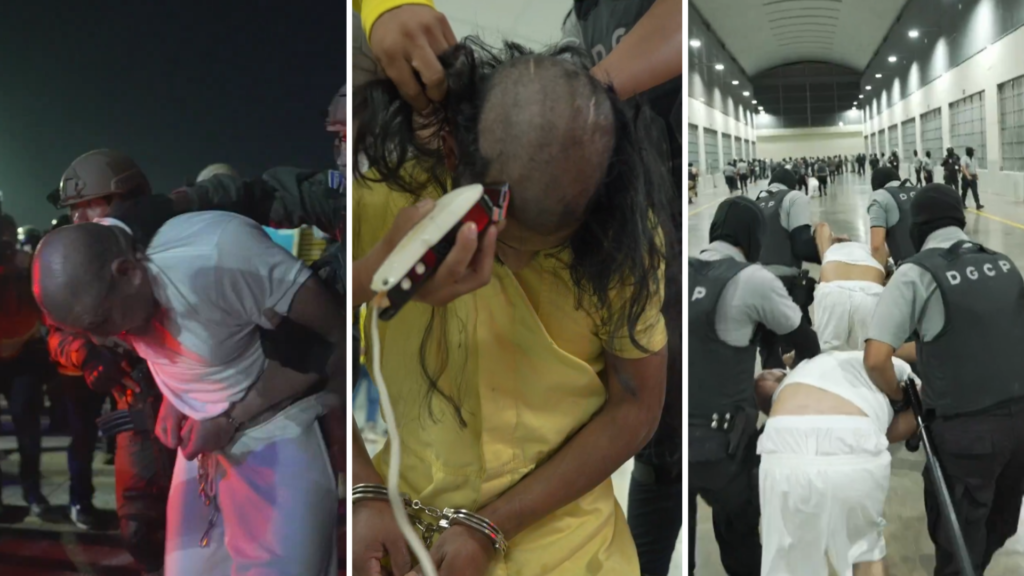
The Trump administration has deported hundreds of illegal immigrants to El Salvador even as a federal judge issued an order temporarily barring the flights under an 18th century wartime declaration targeting Venezuelan gang members, officials said Sunday. Flights were in the air at the time of the ruling.
This occurred despite an emergency order issued by Judge Boasberg at the request of the American Civil Liberties Union (ACLU) to halt the deportations and return the gang members to the U.S.
Deportation of Tren de Aragua and MS-13 Gang Members
According to U.S. Secretary of State Marco Rubio, the deportees included members of the violent Tren de Aragua gang from Venezuela, as well as several MS-13 gang members and some of the most wanted fugitives. These deportations were authorized by President Donald Trump under the 1798 Alien Enemies Act, a move that has been met with both praise and intense legal opposition.

Despite Judge Boasberg’s last-minute intervention in Trump decision, the flights successfully landed, and the illegal immigrants were immediately transferred to El Salvador’s high-security prison, CECOT (Terrorism Confinement Center).
Bukele’s Response: ‘Oopsie…Too Late’
President Bukele took to social media to ridicule the court order, posting a screenshot of a New York Post headline that read, “Fed judge orders deportation flights carrying alleged Venezuelan gangbangers to return to US after Trump invokes Alien Enemies Act.”
Oopsie…
— Nayib Bukele (@nayibbukele) March 16, 2025
Too late 😂 pic.twitter.com/nDHL6deLJq
He later shared video footage of the gang members arriving in shackles at CECOT. In the video, the prisoners—who appeared to be all male—were seen being led under heavy guard, having their heads shaved, and being processed into confinement.
Bukele’s Statement on the Gang Transfers
Alongside the video, Bukele issued an official statement, confirming that 238 members of the Tren de Aragua gang had arrived in El Salvador and would be incarcerated for at least one year, with the possibility of an extension. He also revealed that the U.S. had deported 23 additional MS-13 members, including two high-ranking leaders of the gang.
Bukele outlined the benefits of this arrangement for both nations:
The U.S. will pay a small fee for their incarceration. El Salvador will enhance its intelligence efforts against MS-13. The prison system, already hosting over 40,000 inmates under the ‘Zero Idleness’ program, will become more self-sufficient.
He also emphasized that the intelligence gathered from these criminals would help track down remaining gang members, weapons, drug networks, and collaborators.
“As always, we continue advancing in the fight against organized crime. But this time, we are also helping our allies, making our prison system self-sustainable, and obtaining vital intelligence to make our country an even safer place. All in a single action.”
Secretary Rubio Praises Bukele, Defends Deportations
U.S. Secretary of State Marco Rubio defended the Trump administration’s mass deportation strategy, saying that the move not only removed dangerous criminals from American communities but also strengthened ties with El Salvador.
In a statement, Rubio said:
“We have sent two dangerous top MS-13 leaders plus 21 of its most wanted back to face justice in El Salvador. Also, as promised by President Trump, we sent over 250 members of Tren de Aragua, which El Salvador has agreed to hold in their very good jails at a fair price that will also save U.S. taxpayer dollars.”
Thank you for your assistance and friendship, President Bukele. https://t.co/E6DrFLeU5F
— Secretary Marco Rubio (@SecRubio) March 16, 2025
How This Agreement Was Reached
This mass deportation was the result of a high-profile meeting between Rubio and Bukele in February 2025. The two leaders negotiated a security partnership aimed at tackling transnational crime and illegal immigration.
According to a State Department readout, key agreements from that meeting included:
El Salvador agreeing to accept and incarcerate not just Salvadoran MS-13 gang members but also criminals from Venezuela and other countries. Bukele offering to house dangerous criminals—including U.S. citizens—in El Salvador’s supermax prisons, a move unprecedented in international cooperation. The U.S. agreeing to resume frozen aid to El Salvador for counterterrorism and border security efforts. Both countries collaborating to counter Chinese Communist Party influence in the region.
Rubio’s visit was seen as a major diplomatic success in addressing illegal immigration and strengthening law enforcement ties between the two nations.
While the Trump administration and its allies hailed the deportations as a victory, opposition groups—including the ACLU—have vowed to continue fighting in court to block further deportations under the Alien Enemies Act.
Legal experts anticipate that Judge Boasberg’s emergency order will fuel more lawsuits, particularly from organizations arguing that mass deportations of Venezuelans violate international human rights agreements.

